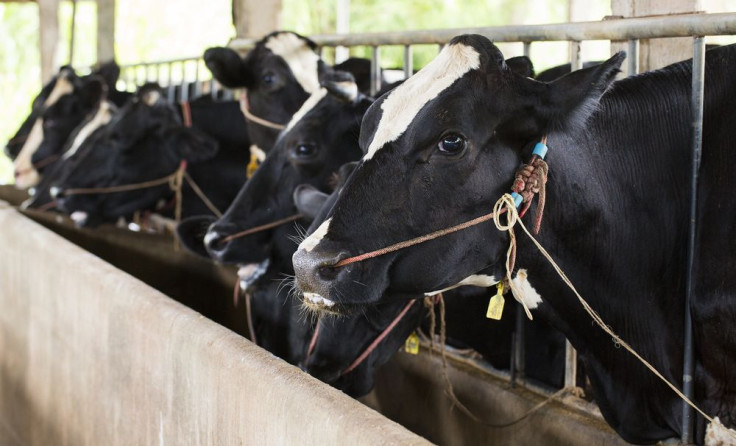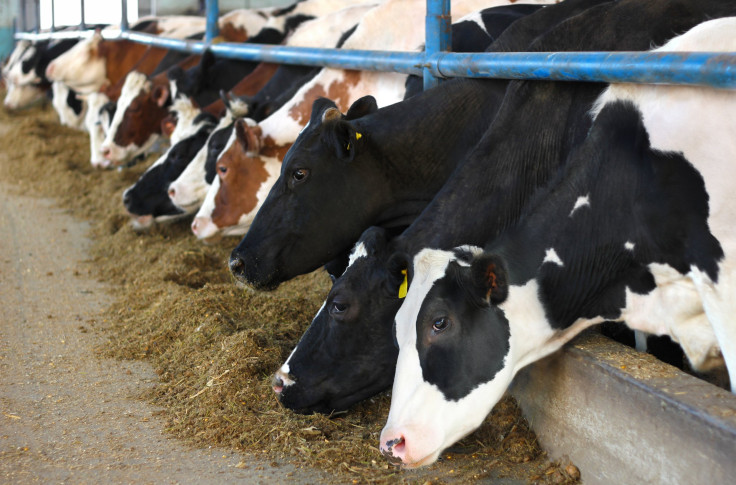Climate Change Proposed Solution: Feed Pink Seaweeds To Cows

Bovine flatulence, aka cow farts, plus farts from other livestock continue to remain a leading cause of climate change.
Worldwide, livestock are estimated to be responsible for 14.5 percent of all anthropogenic greenhouse gas emission into the atmosphere every year. Of this immense amount, 65 percent is accounted for by cattle.
Scientists estimate each cow on Earth releases some 100 kg of methane into the atmosphere every year. There are more than 1 billion cows on the planet. So, all the cows release more than 100 billion kg of methane by farting. And this amount is just two-thirds of the total methane estimated to be ejected into the air by all livestock on Earth.
Then, there’s the damage to the atmosphere caused by livestock dung that also releases methane.
The heat-trapping potential of methane makes it much more harmful than carbon dioxide, especially in the short term. Over the course of a century, atmospheric methane is 28 times more effective at trapping heat than CO2. In a 20-year time frame, it's thought to be over 100 times worse.
The question facing tree huggers and environmentalists is how to mitigate the methane produced by cattle. You can’t kill livestock to solve this smelly problem, can you?
This task sounded like a mission impossible until a group of Australian researchers discovered that a pinkish-colored seaweed that grows in temperate tropical waters can almost completely eliminate the methane in livestock farts.
The crimson-hued algae that can perform this miracle is called “Asparagopsis taxiformis” or A. taxiformis.
A. taxiformis inhibited 98.9 percent of the cows’ methane production after 72 hours. This made it the most effective among the 20 different species of tropical macroalgae tested to see which might best reduce methane production when fed to cattle.
A five year-long study by researchers at the University of the Sunshine Coast in Queensland, Australia, shows that chemicals in algae such as A. taxiformis reduce the number of microbes in the cows' stomachs that cause them to burp when they eat grass.
Commercializing this algae in massive quantities might become a truly effective solution in reducing greenhouse gas emissions from livestock.
"When added to cow feed at less than two percent of the dry matter, this particular seaweed completely knocks out methane production," Nick Paul, an aquaculture biologist from the University of the Sunshine Coast, said.
The challenge now is to make sure A. taxiformis doesn’t affect the cow’s health or the quality of its milk.
Paul said this seaweed is causing a lot of global interest that people around the world are working to make sure the cows are healthy and the beef and the milk are of good quality. Then, there’s the problem of mass producing this algae.
"The conundrum we have is that this is not a particularly abundant species and we can't just harvest it from the sea," Paul said.
"So as we have these wonderful discoveries we're trying to find a way to actually farm it, and produce enough to have the environmental impact we're seeking."

Published by Medicaldaily.com



























